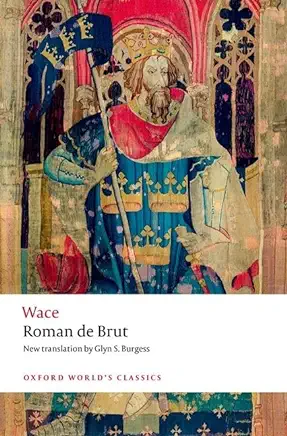
description
t, and to know about, kings and heirs, about who first ruled England and which kings it had, Master Wace, who is telling the truth about this, has translated this.' Wace's Roman de Brut (1155) can be seen as the gateway to the history of the Britons for both French and English speakers of the time, and thus to Arthurian history, as the first complete Old French adaptation of Geoffrey of Monmouth's Latin History of the Kings of Britain (late 1130s), in which Arthur appears for the first time as king of the Britons. The Roman de Brut was a foundational work, an inspiration for a series of anonymous verse Bruts of the late twelfth and thirteenth centuries and for the Anglo-Norman Prose Brut -- the most widely read French vernacular text on this material in medieval England -- as well as a forerunner of the Middle English Brut tradition, including Layamon's Brut (c. 1200). Wace's poem thus inaugurates and shapes Brut traditions, including Arthurian tales, in verse and in prose, in historiography and in literature, including Wace's innovation of King Arthur's Round Table. This volume contains an English prose translation of Wace's Roman de Brut, accompanied by an introduction and notes, a select bibliography, a summary of the text, a list of manuscripts, and indexes of personal and geographical names.
member goods
No member items were found under this heading.
Return Policy
All sales are final
Shipping
No special shipping considerations available.
Shipping fees determined at checkout.







